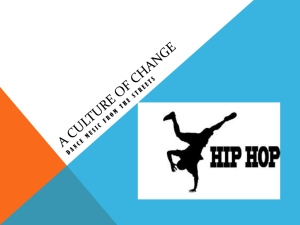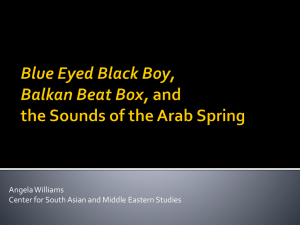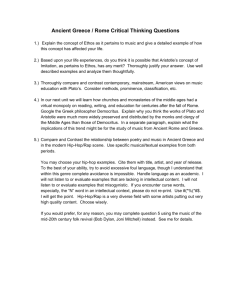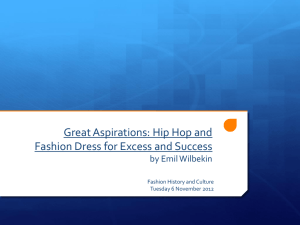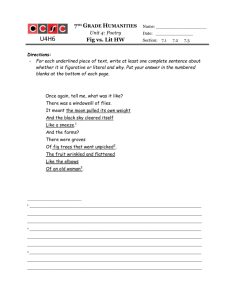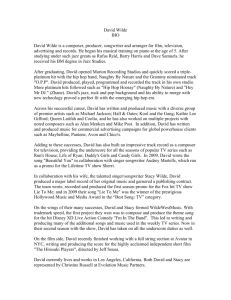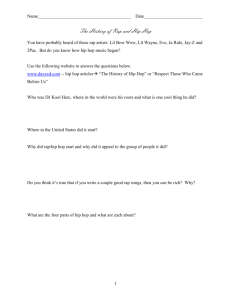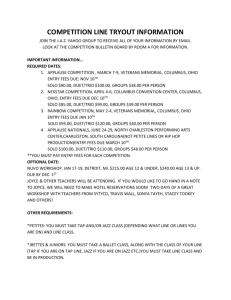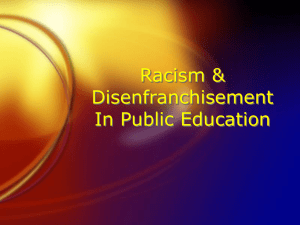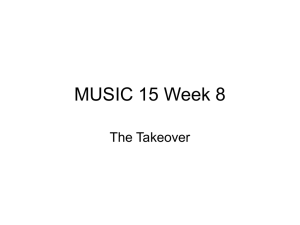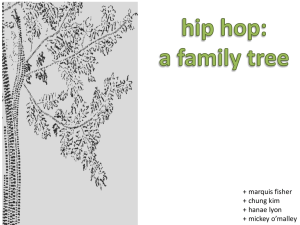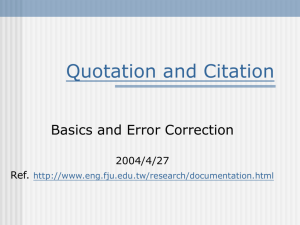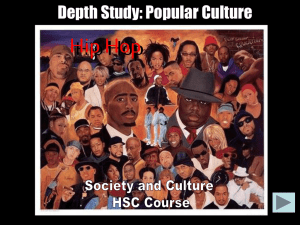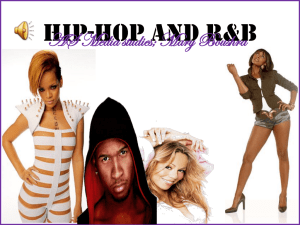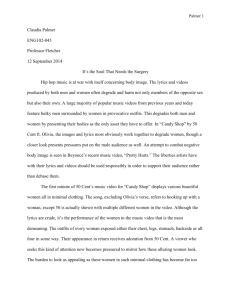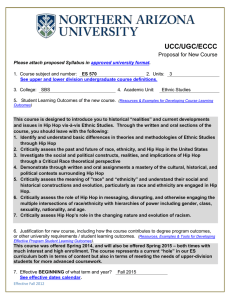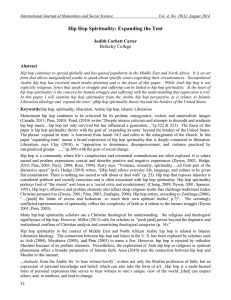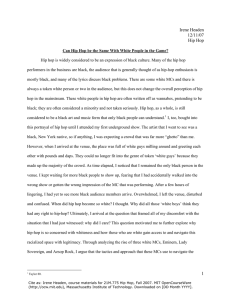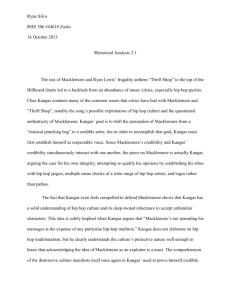My Music
advertisement
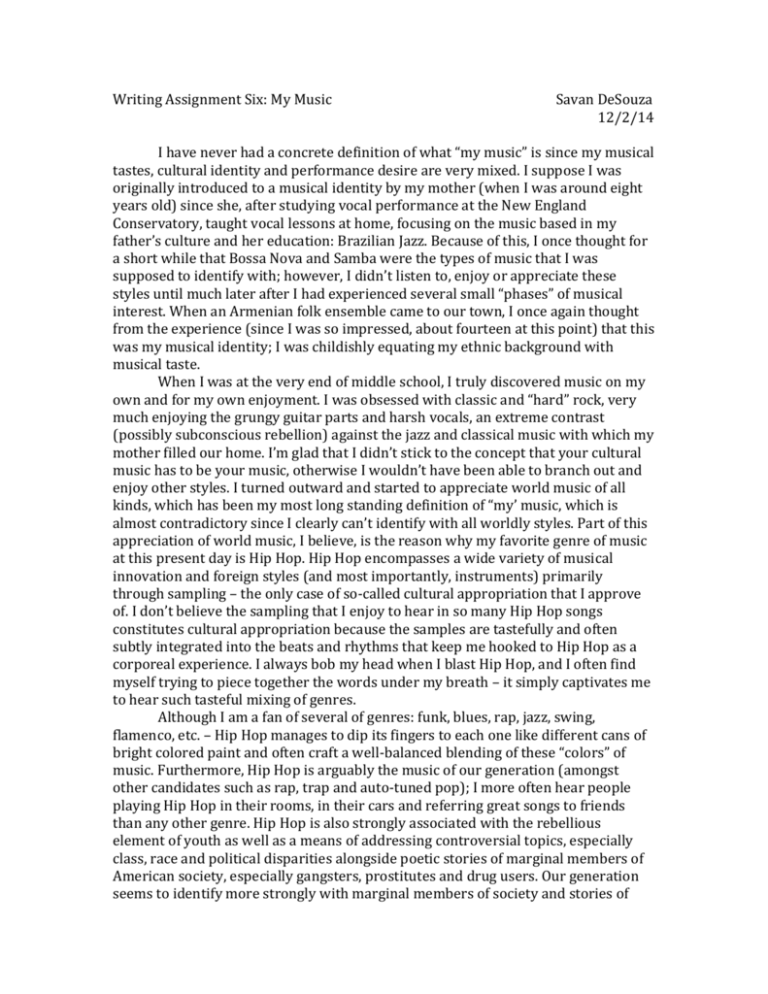
Writing Assignment Six: My Music Savan DeSouza 12/2/14 I have never had a concrete definition of what “my music” is since my musical tastes, cultural identity and performance desire are very mixed. I suppose I was originally introduced to a musical identity by my mother (when I was around eight years old) since she, after studying vocal performance at the New England Conservatory, taught vocal lessons at home, focusing on the music based in my father’s culture and her education: Brazilian Jazz. Because of this, I once thought for a short while that Bossa Nova and Samba were the types of music that I was supposed to identify with; however, I didn’t listen to, enjoy or appreciate these styles until much later after I had experienced several small “phases” of musical interest. When an Armenian folk ensemble came to our town, I once again thought from the experience (since I was so impressed, about fourteen at this point) that this was my musical identity; I was childishly equating my ethnic background with musical taste. When I was at the very end of middle school, I truly discovered music on my own and for my own enjoyment. I was obsessed with classic and “hard” rock, very much enjoying the grungy guitar parts and harsh vocals, an extreme contrast (possibly subconscious rebellion) against the jazz and classical music with which my mother filled our home. I’m glad that I didn’t stick to the concept that your cultural music has to be your music, otherwise I wouldn’t have been able to branch out and enjoy other styles. I turned outward and started to appreciate world music of all kinds, which has been my most long standing definition of “my’ music, which is almost contradictory since I clearly can’t identify with all worldly styles. Part of this appreciation of world music, I believe, is the reason why my favorite genre of music at this present day is Hip Hop. Hip Hop encompasses a wide variety of musical innovation and foreign styles (and most importantly, instruments) primarily through sampling – the only case of so-called cultural appropriation that I approve of. I don’t believe the sampling that I enjoy to hear in so many Hip Hop songs constitutes cultural appropriation because the samples are tastefully and often subtly integrated into the beats and rhythms that keep me hooked to Hip Hop as a corporeal experience. I always bob my head when I blast Hip Hop, and I often find myself trying to piece together the words under my breath – it simply captivates me to hear such tasteful mixing of genres. Although I am a fan of several of genres: funk, blues, rap, jazz, swing, flamenco, etc. – Hip Hop manages to dip its fingers to each one like different cans of bright colored paint and often craft a well-balanced blending of these “colors” of music. Furthermore, Hip Hop is arguably the music of our generation (amongst other candidates such as rap, trap and auto-tuned pop); I more often hear people playing Hip Hop in their rooms, in their cars and referring great songs to friends than any other genre. Hip Hop is also strongly associated with the rebellious element of youth as well as a means of addressing controversial topics, especially class, race and political disparities alongside poetic stories of marginal members of American society, especially gangsters, prostitutes and drug users. Our generation seems to identify more strongly with marginal members of society and stories of urban life told through spoken word. For these past examples, I would also consider Hip Hop as belonging to a group that I do not belong to, not to mention the myriad ethnic groups featured in samples (which I also don’t belong to); however, Hip Hop seems to more or less be everyone’s music in my eyes. It becomes my music when I listen to it and really resonate with it: I am nodding my head, moving my body in rhythm or full blown dancing – and even further when if I love it so much that I literally make it mine by downloading it.
